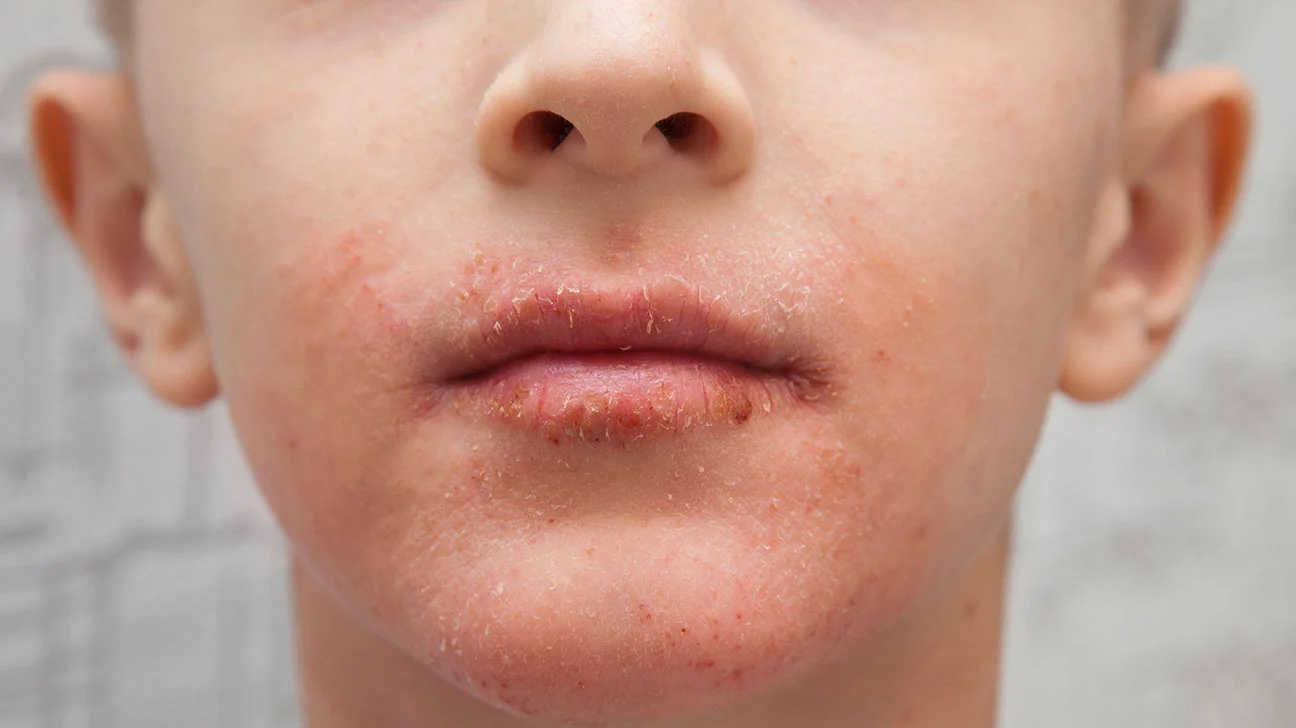Eczema, also known as atopic dermatitis, is a skin condition that causes itching and redness. There are some measures you can take to reduce the discomfort and appearance of eczema. To learn these steps, read on.
1. Think about Eczema Relief Cream.
There are numerous creams and medications available, including eczema relief creams that focus on symptom reduction. Investigate various creams, such as gold bond eczema relief. There are prescription medications as well as over-the-counter eczema treatments available from dermatologists or doctors. Consult your doctor about the best options for you.
2. Scratching irritated skin should be avoided.
Scarring is uncommon in the majority of cases of eczema. However, if you scratch eczema patches frequently, you may develop open wounds that scar. Some creams, such as eczema scar creams, as well as other scan removal medicines and procedures, can be beneficial. Consult your physician about scar removal treatments and options. In addition, check to see if any scar removal treatments are covered by your health insurance plan.
3. Apply moisturizer to your skin on a regular basis.
Moisturizing your skin on a regular basis can help reduce eczema. Find the best face moisturizer and body lotion for you. These products frequently include additional benefits such as anti-aging moisturizers or sunscreen to protect your skin. With these additional benefits, as well as the relief from your eczema, it is critical to consider including moisturizers in your daily routine.
4. Take a Warm Bath
When your eczema symptoms flare up, consider taking a warm bath. Warm baths can help relieve itchiness and reduce the severity of eczema symptoms. This is an effective natural eczema treatment that should not be overlooked when treating eczema.
5. Consult your doctor or dermatologist
Asking your doctor about the treatments they recommend is important because everyone’s skin is different, so the products and treatments that work best for you may differ from those that work best for others. There are hand eczema treatments and creams available, for example, if your eczema flares up on your hands. If you have severe allergies, natural treatments such as baths may be preferable to pharmaceutical treatments. Furthermore, by asking your doctor about eczema treatments, they may be able to provide products or treatments that are covered by your health insurance plan.
Topical remedies
1. Aloe vera gel
Aloe vera gel is derived from the aloe plant’s leaves. For centuries, people have used aloe vera gel to treat a variety of ailments, including eczema.
How to Use It
People can purchase aloe vera gel in health stores or online, or they can buy an aloe vera plant and extract the gel from its leaves.
Individuals should use aloe gel products that contain few ingredients — some products may contain preservatives, alcohol, fragrances, and colors, which can irritate sensitive skin. Furthermore, alcohol and other drying ingredients may aggravate eczema.
Begin with a small amount of gel to assess skin sensitivity, as aloe vera can occasionally cause burning or stinging. It is, however, generally safe and effective for both adults and children.
2. Apple cider vinegar
ACV (apple cider vinegar)Apple cider vinegar is a well-known home remedy for a variety of ailments, including skin conditions. According to the National Eczema Association (NEA), apple cider vinegar may help with the condition. However, the organization advises caution because the vinegar’s acids can cause soft tissue damage.
How to use it
Before applying apple cider vinegar to the skin, always dilute it; undiluted vinegar can cause chemical burns or other injuries.
The vinegar can be used in wet wraps or baths, and it is widely available in supermarkets and health food stores.
To use apple cider vinegar in a wet wrap, do the following:
- Mix 1 cup warm water and 1 tablespoon apple cider vinegar.
- Apply the solution to a piece of cotton or gauze.
- Cover the dressing with a clean cotton cloth.
- Allow it to sit on the area for 3 hours.
3. Colloidal oatmeal
Colloidal oatmeal, also known as Avena sativa, is made from ground and boiled oats to extract their skin-healing properties.
How to use it
Add powdered colloidal oatmeal to a warm bath and soak.
Select a colloidal oatmeal product that contains only oats and avoid those that contain fragrances or additives. Pure colloidal oatmeal can be purchased at health food stores or online.
There are also lotions and creams that contain colloidal oatmeal.
Colloidal oatmeal is generally safe for people of all ages, but those who are allergic to oats should avoid it. Individuals with gluten allergies should exercise caution as well, because manufacturers frequently process oats with wheat.
4. Coconut oil
Coconut oil contains beneficial fatty acids that can help people with dry skin and eczema by adding moisture to the skin.
How to use it
Apply cold-pressed virgin coconut oil to the skin after bathing and up to several times per day. Use it before going to bed to keep your skin moisturized all night.
Extra-virgin coconut oil is generally solid at room temperature, but the warmth of a person’s body transforms it into a liquid. The oil is available in health stores and online.
However, people who are allergic to coconuts should avoid using coconut oil.
5. Honey
Honey is a natural antibacterial and anti-inflammatory agent that has been used for centuries to heal wounds.
How to Use it
Try dabbing some honey on the affected area. Manuka honey products for wound care and skin application are widely available in drug stores and online.
6. Tea tree oil
Tea tree oil is extracted from the leaves of the Melaleuca alternifolia tree. This oil is commonly used to treat skin conditions such as eczema.
How to Use It
Before applying essential oils to the skin, always dilute them. Before applying the solution, combine tea tree oil with a carrier oil, such as almond or olive oil. Some products contain diluted tea tree oil.
ALSO SEE: How to Effectively Lose Weight in 7 days






